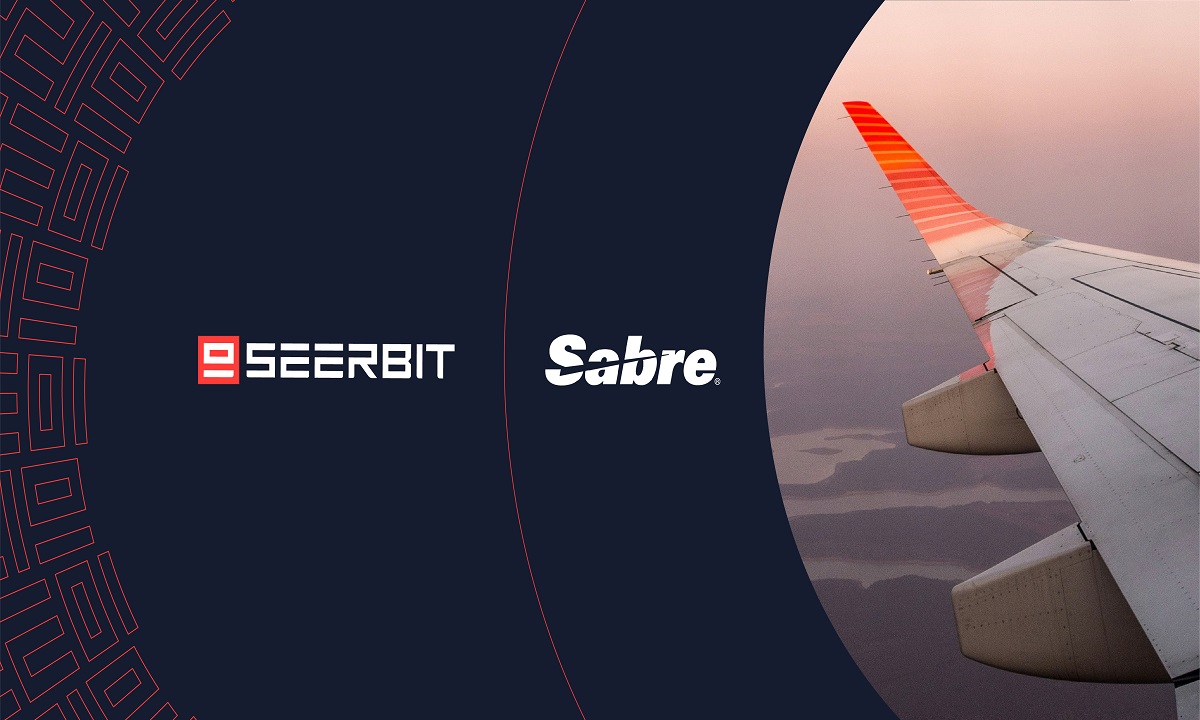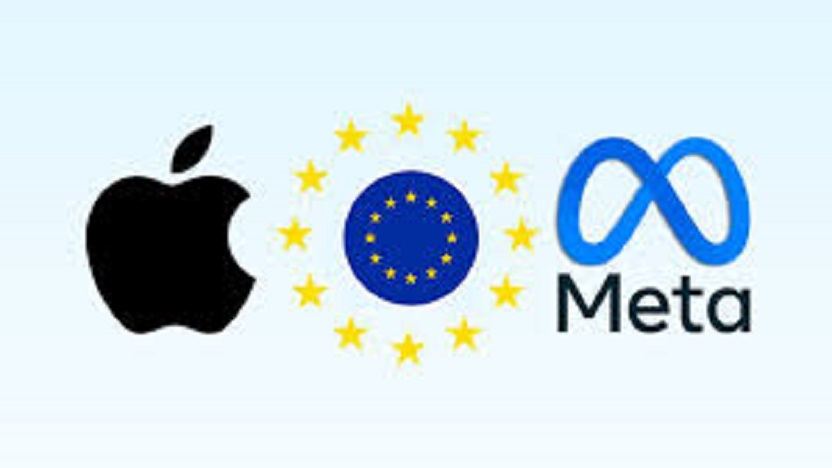Telecom
SeerBit X Sabre: Addressing Payment Challenges in the Airline Industry

Airlines around the world strive to ensure a seamless and convenient travel experience for millions of passengers. However, behind the scenes, these businesses grapple with issues, such as complex payment processes which impact revenue, operational efficiency and customer satisfaction.

The pressure to meet the ever-rising expectations of customers, as well as other issues, such as high transaction fees, threat of fraud, multi-currency complexities and reconciliation challenges all add up to form giant pain points that airlines have to constantly battle with. These pain points have a detrimental effect on the growth projections for the aviation industry in Africa.
A recent report suggests that the continent’s flights market is expected to generate $14.50 billion in revenue by 2029, with the number of users expected to hit 108.60 million. However, prevailing payment obstacles, aligned with infrastructure deficiencies, high costs and taxation require innovative solutions to transform them into growth opportunities for the aviation industry.
The Complex Payment Landscape for Airlines
As airlines continue to expand globally, payment challenges become increasingly multifaceted, impacting profitability and operational efficiency. These challenges cut across payment-related, operational and regulatory issues.
1. High Transaction Costs
Airlines face a daunting task of managing costs because of the additional substantial expense that high transaction fees and multi-currency handling add. According to a report from the International Air Transport Association (IATA), processing fees alone can cost airlines billions annually, cutting directly into profits. Fluctuating currency values and international transaction fees make up a significant part of the costs incurred by global airlines and which impact their bottom line.
2. Revenue Leakage and Payment Fraud
Payment fraud has become a serious risk for airlines worldwide, especially with the rise of digital payments. According to IATA, the aviation industry loses up to 1.2% of its annual revenue to fraud. Fraudulent transactions and other associated risks threaten airline revenue streams, making it essential to have a secure payment infrastructure. For example, without adequate safeguards, airlines can lose significant amounts to credit card fraud, chargebacks, and unauthorised transactions, leading to revenue leakage.
3. Reconciliation Headaches
For global airlines, payment reconciliation across various sales channels, regions and currencies is both error-prone and time-consuming. Every day, airlines process thousands of transactions from sources including online bookings, travel agents and in-flight sales. The large scale volume of these transactions makes it difficult to align the records accurately, leading to discrepancies that impact financial reporting and decision-making.
4. Customer Experience Expectations
Travellers in today’s world expect fast, seamless payment experiences that fit their on-the-move lifestyles. Long queues, payment processing delays or currency incompatibility can sour the customer journey, leading to customer dissatisfaction and decreased loyalty. According to a recent report, over 70% of passengers say they are unlikely to return to an airline if they encounter a negative payment experience.
5. Regulatory Compliance Across Multiple Jurisdictions
Operating globally means airlines must navigate complex and varying regulatory landscapes. Each country enforces its own rules regarding data protection, taxation and financial reporting, creating significant operational challenges. Failure to meet these regulations can lead to hefty fines, operational delays and reputational damage. Managing compliance in every market requires time and resources that detract from an airline’s primary focus on delivering excellent service.
SeerBit & Sabre Partnership: A Strategic Solution for Airlines
Through a recent partnership with Sabre, SeerBit is helping airlines navigate the complexities of the payment ecosystem by addressing key pain points and enhancing operational efficiency.
Here’s how SeerBit and Sabre’s unified solution addresses business pain points and challenges for airlines:
1. Streamlined Payment Processes
With SeerBit, airlines using Sabre can now enjoy a streamlined payment process that optimises the end-to-end transaction cycle, from booking to post-flight purchases. This integration provides real-time payment processing, which reduces the need for manual intervention, and offers airlines an efficient, cost-effective approach to managing global transactions.
2. Multi-Currency and Global Reach Capabilities
SeerBit offers payment solutions that empower airlines on Sabre to receive and manage payments across different regions and multiple currencies seamlessly. SeerBit’s robust support for international currencies and compliance with local regulations ensures that airlines can operate confidently in new markets, meeting regional compliance, while offering a seamless experience to travellers worldwide.
Irrespective of where an airline operates, SeerBit’s multi-currency solutions ensure reduced fees, prevent currency volatility losses and ensure compliance across borders.
3. Advanced Security and Fraud Detection
The strategic partnership between SeerBit and Sabre prioritises security, with fraud detection and prevention features tailored to the unique needs of airlines. Advanced data encryption features safeguard payment channels, drastically reducing the risk of fraud. Airlines can rely on SeerBit to provide a trusted environment for their customers, minimising exposure to fraud and enhancing overall customer trust.
4. Data-Driven Insights and Reporting
Data is invaluable for airlines aiming to optimise their operations. Through SeerBit’s integration with Sabre, airlines can enjoy access to real-time insights that support financial reconciliation and accurate reporting. This solution provides a consolidated view of airline payments, allowing finance teams to make data-backed decisions and identify opportunities to reduce costs or improve efficiency. Further, airlines are in a position to understand customer payment behaviours better, enabling them to tailor their offerings. By analysing payment data, airlines can refine services based on passenger preferences, such as prioritising mobile payment options for younger customers who value speed and simplicity
Key Benefits of SeerBit & Sabre Integration for Airlines
By addressing core payment pain points in the aviation industry, SeerBit and Sabre help airlines achieve operational efficiency, cost savings and enhanced customer loyalty.
1. Increased Revenue and Lowered Costs
By reducing multi-currency fees and eliminating revenue leakage, airlines can experience improved profitability. SeerBit’s solutions help streamline transaction costs, optimise revenue and offer airlines a competitive edge in their pricing strategies.
2. Enhanced Customer Experience
Customers who enjoy seamless and secure payment options are more likely to develop loyalty to an airline. Sabre’s emphasis on great customer experience aligns with SeerBit’s mission to simplify payment interactions, allowing airlines to offer a payment journey that matches their travel excellence goals. With faster, flexible payment options, airlines can boost customer satisfaction and retention rates.
According to IATA’s Global Passenger Survey, around 38% of passengers are dissatisfied with limited payment flexibility, impacting their willingness to book services. Airlines that expanded their payment options to include localised methods, e.g., mobile payments, reported higher customer satisfaction and retention by catering to diverse payment preferences across age groups and regions.
3. Optimised Operational Efficiency
Automation of payment processes and reconciliation reduces manual errors and enhances operational efficiency. SeerBit’s robust reconciliation tools help airlines consolidate transactions from various channels, simplifying financial management and boosting operational productivity.
4. Scalability and Future-Readiness
SeerBit and Sabre’s partnership provides airlines with scalable solutions designed to meet future industry demands. As travel returns to a high post-pandemic, airlines can rely on flexible solutions offered by this strategic partnership to adapt to changing market trends and customer needs, ensuring long-term success.
A Future of Seamless, Secure Airline Payments
Africa is emerging as the next major frontier for air travel. A recent study on emerging markets projects that by 2030, the African aviation industry will experience robust growth, with a compound annual growth rate of 5% to 6% in passenger traffic. This expansion is fueled by urbanisation, a growing middle class and enhanced connectivity. Alongside this growth, African airlines are expected to double their fleet size, contributing over $100 billion to the continent’s GDP and supporting more than 6 million jobs.
To meet these ambitious targets and navigate a complex global market, airlines need payment solutions that are secure, cost-effective, and aligned with evolving customer expectations. SeerBit’s partnership with Sabre Corporation delivers a powerful, integrated payment platform designed to reduce transaction costs, fortify security and enhance the customer experience.
This landmark collaboration empowers decision-makers and stakeholders in African aviation to modernise payment operations, boost efficiency, and unlock new revenue streams. Through this key integration, businesses across the aviation value chain are well-positioned to thrive in an increasingly competitive landscape and set new benchmarks for operational excellence.
Learn more on how to unlock the key benefits of the SeerBit X Sabre partnership for airlines here.
Telecom
EU Fines Apple and Meta €700m in Landmark Digital Markets Act Enforcement

European Commission has imposed landmark fines on tech giants Apple and Meta in the first enforcement actions under the Digital Markets Act (DMA), a new regulatory framework designed to enhance consumer choice and ensure fair competition in the digital economy.

Apple was fined €500 million (£428.3 million) for restricting app developers from guiding users to alternative purchasing options outside its App Store, a practice the commission said limited access to more affordable offers and stifled competition.
The commission has ordered Apple to amend its App Store policies by late June to comply with the DMA, warning that failure to do so could result in further daily penalties.
Meta, the parent company of Facebook and Instagram, was fined €200 million (£171.3 million) over its ‘pay or consent’ model, which required European Union users to either pay for an ad-free experience or consent to personalised advertising.
The commission found that this model failed to offer users a genuine choice and violated rules governing data processing and user consent. Meta’s revisions to this model, made in November 2024, are currently under review by the EU.
Both companies have pushed back against the commission’s decisions. Apple announced plans to appeal, stating that the ruling was unjust and detrimental to user privacy and security. “Today’s announcements are yet another example of the European Commission unfairly targeting Apple in a series of decisions that are bad for the privacy and security of our users, bad for products, and force us to give away our technology for free,” the company said.
Meta also criticised the EU’s approach, claiming that it imposes undue burdens on successful American companies while allowing competitors from China and Europe to operate under different standards. Joel Kaplan, Meta’s chief global affairs officer, said, “This isn’t just about a fine; the Commission forcing us to change our business model effectively imposes a multi-billion-dollar tariff on Meta while requiring us to offer an inferior service.”
The fines are part of a broader effort by the EU to clamp down on dominant digital platforms, known as ‘gatekeepers’, and ensure they do not abuse their market positions.
The commission has also concluded an investigation into Apple’s compliance with DMA rules on browsers and default apps, acknowledging changes that have opened up more space for competition.
However, Apple remains under scrutiny for its handling of alternative app marketplaces, which could attract additional penalties.
The enforcement measures may further strain transatlantic relations, with some in the United States, including former President Donald Trump’s administration, criticising the EU’s digital regulations as disproportionately targeting American firms.
Despite the pushback, the European Commission insists that the DMA is enforced impartially to safeguard consumer rights and foster a level playing field in the digital market.
Telecom
Nigeria Hits 1 Terabit Internet Traffic Milestone

IXPN, Nigeria’s leading Internet Exchange Point, is proud to announce a landmark achievement: crossing 1 Terabit per second (1Tbps) in aggregate peak domestic internet traffic for the first time.

This milestone signifies a major leap forward in developing Nigeria’s internet infrastructure and underscores the critical role of local internet infrastructure in driving economic growth, innovation, and connectivity for millions of Nigerians.
“This milestone is more than just a number. It’s a symbol of Nigeria’s digital maturity and our united strides towards becoming a tech-driven nation. By keeping local internet traffic within Nigeria, we reduce costs, improve speeds, and ensure our digital economy thrives with homegrown infrastructure.” said Muhammed Rudman the CEO of IXPN.
“Achieving 1 Tbps is a significant victory for Nigeria’s ICT ecosystem, a breakthrough for domestic internet traffic. It serves as a catalyst, enabling millions of Nigerians to enjoy faster, more affordable, and resilient internet connectivity.”

1 Terabit per second is a game-changer for Africa’s most populous country. To put it in perspective:
- Mega Video Calls: A speed of 1 Tbps can support over 1 million concurrent Zoom calls, allowing students, entrepreneurs, and professionals to connect and drive Nigeria’s digital revolution.
- Streaming Frenzy: With 1 Tbps, more than 200,000 people can stream HD Nollywood films or movies on Netflix simultaneously without any buffering or interruptions.
- Data Superpower: This speed enables the transfer of the entire contents of 50,000 smartphones—including photos, apps, and videos—in just one second.
For Nigeria, hitting this milestone means reducing reliance on international bandwidth, decreasing latency for local services, and strengthening our position as Africa’s digital heartbeat. This milestone is a testament to the power of collaboration, innovation, and the relentless pursuit of a faster, more connected Nigeria.
This accomplishment goes beyond technical advancements; it has significant economic implications. By encouraging local traffic exchange, IXPN reduces dependency on international bandwidth, leading to:
- Significant Cost Savings: By utilizing local data exchange, Nigerian businesses can save millions of dollars annually on international bandwidth fees.
- Enhanced Speed and Connectivity: With reduced latency, users experience smoother streaming, gaming, and real-time services, enhancing their overall online experience.
- Increased Resilience: Strengthening Nigeria’s internet infrastructure protects against global disruptions, ensuring consistent access to vital services such as healthcare and education.
- Improved Efficiency: Optimizes digital services like fintech, edtech, e-commerce, and e-health, propelling innovation and growth in these sectors.
Surveys conducted among IXPN members over the years have shown a growing percentage of local internet traffic in Nigeria. A recent report indicates that some connected members can localize or domesticate up to 70% of their internet traffic through IXPN.
“As more content providers, ISPs, banks, and public institutions localize their traffic through the IXP, end users benefit directly,” added Raphael Iloka (Marketing Manager). “We’re not just routing data — we’re building the foundation for Nigeria’s digital economy.”
The 1 Tbps peak highlights the remarkable impact of collaboration among all stakeholders. This milestone is a significant achievement not only for IXPN, but for the entire ICT ecosystem. IXPN deeply appreciates the vital contributions of all stakeholders involved.
To our Members and Partners: Your trust and participation have been essential to our growth. Together, we have established a hub where networks can interconnect, innovate, and thrive.
To the Government and Regulators: We express our sincere appreciation to the Nigerian Communications Commission (NCC) for all its support over the years and its vision of a digitally inclusive Nigeria.
To our Team: We extend our gratitude to our engineers, network administrators, and all other staff who work tirelessly behind the scenes to push boundaries.
To the Global Community: We are grateful to partner organizations like the Internet Society (ISOC). Your support and advocacy in domestic peering empower us all.
Reaching 1 Tbps is just the beginning. As data demands skyrocket with AI, IoT, 5G, and immersive technologies, IXPN is committed to staying ahead of the curve. Here’s how:
- Scaling Infrastructure: We are investing in advanced hardware and software to support multi-terabit capacities.
- Enhancing Resilience: We are strengthening our network to ensure uptime, security, and adaptability in an ever-changing digital landscape.
- Empowering Underserved Communities: We aim to expand our reach to rural areas, bridging the digital divide, and supporting agritech, edtech, and telehealth.
- Strengthening Africa’s Digital Sovereignty: Partnering with regional IXPs to keep Africa’s data on the continent.
Telecom
TD Africa’s TecHERdemy Empowers 400 Women to Lead in Tech

On April 17, 2025, the atmosphere at Yudala Heights was electric with pride, hope, and inspiration as TD Africa, the leading tech distribution company in Sub-Saharan Africa, celebrated the graduation of 400 young Nigerian women from its flagship TecHERdemy program.

Over the past six months, these incredible women immersed themselves in rigorous, hands-on training in Cybersecurity, Data Science, Artificial Intelligence, and Software Development. They are now confidently stepping into the tech world, ready to make their mark.
The event brought together top voices in the industry, including Dr. Leo Stan Ekeh, Chairman of the Zinox Group, who commended the graduates for their resilience and brilliance. In his keynote speech, he shared a hopeful vision for Africa’s future, calling these young women “the pioneers of a new, inclusive era of tech leadership on the continent.”
Mrs. Chioma Ekeh, CEO of TD Africa, also delivered a heartfelt message, urging the graduates to let their values guide them as they navigate their careers.
“Hold tightly to your values. Let integrity guide your work, let innovation fuel your dreams, and let your impact speak louder than your résumé,” she encouraged.
The ceremony was filled with emotion as graduates shared their personal stories of transformation. One of them, Yetunde Kayode, now a certified data scientist, summed it up beautifully: “This program changed my life. I’m walking away empowered, skilled, and deeply grateful to Mrs. Ekeh and the TecHERdemy team for believing in us.”
Fifteen exceptional participants were also honoured for their outstanding performance and leadership during the program, reminding everyone that excellence comes in many forms.
TecHERdemy, which launched in November 2024, was built with a simple but powerful mission: to equip young Nigerian women with globally relevant digital skills and open doors to a tech career. But what happened over those six months went beyond just skills; it sparked a movement.
This graduation wasn’t just the end of a program. It was the beginning of a brighter, more inclusive future for tech in Africa.

 Telecom2 days ago
Telecom2 days agoDigital Transformation Remains Africa’s Gateway to Economic Advancement – Adumike

 Telecom2 days ago
Telecom2 days agoPAFON 2.0: Experts Discuss Pathways to Boost Financial Inclusion in Nigeria

 General News2 days ago
General News2 days agoEFCC Clarifies SCUML Certificate Misuse amid CBEX Ponzi Scheme Scandal

 Telecom1 day ago
Telecom1 day agoMTN Nigeria Faces Class Action Lawsuit over Alleged Data Mismanagement

 E-Financial2 days ago
E-Financial2 days agoCBN, NGX Group Defend Economic Reforms at Nasdaq

 Telecom1 day ago
Telecom1 day agoNigeria Hits 1 Terabit Internet Traffic Milestone

 General News1 day ago
General News1 day agoFG to Introduce New Tax Credit Scheme to Replace Pioneer Status Incentive

 E-Financial1 day ago
E-Financial1 day agoFCMB Capital Markets Leads ₦11.85bn GLNG Bond for LNG Plant Expansion



























